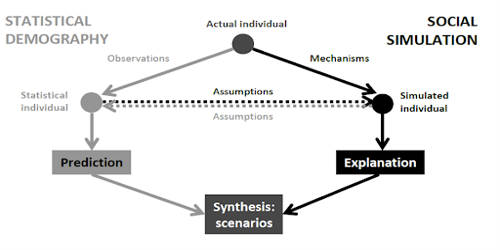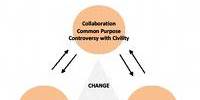Social simulation is a research field that applies computational methods to study issues in the social sciences. It is the application of computer-based methods and technologies to replicate human social behavior in various environments and scenarios. The issues explored include problems in computational law, psychology, organizational behavior, sociology, political science, economics, anthropology, geography, engineering, archaeology, and linguistics. It is a special type of simulation, policy simulation may also be used to explore real policy issues.
The social simulation aims to cross the gap between the descriptive approach used in the social sciences and the formal approach used in the natural sciences, by moving the focus on the processes/mechanisms/behaviors that build the social reality. It is social because it requires the participation of real people who represent different groups and organizations.
Social simulation is a new method for the social sciences that combines some of the advantages of statistics and qualitative research. All types of simulations offer a combination of science-based and relational problem-solving. In the social simulation, computers support human reasoning activities by executing these mechanisms. The Social Simulation research group is part of a collaborative international network of scholars who utilize innovative computer modeling and social simulation techniques to produce policy-relevant scientific research on issues such as cultural conflict, migration, populism, and climate change. This field explores the simulation of societies as complex non-linear systems, which are difficult to study with classical mathematical equation-based models. The idea of simulation is to construct a computer program that has some of the properties of a ‘real world’ social process and observe what happens when the program runs. Robert Axelrod regards social simulation as a third way of doing science, differing from both the deductive and inductive approach; generating data that can be analyzed inductively, but coming from a rigorously specified set of rules rather than from direct measurement of the real world. Thus, simulating a phenomenon is akin to generating it—constructing artificial societies. These ambitious aims have encountered several criticisms. There is a rapidly growing body of research-based on simulation, spanning the whole range of the social sciences.
The social simulation approach to the social sciences is promoted and coordinated by three regional associations, ESSA for Europe, North America (reorganizing under the new CSSS name), and PAAA Pacific Asia. They provide a testing ground where educators, sustainability professionals, and policymakers can collaboratively set out future options and a path for getting there.
















